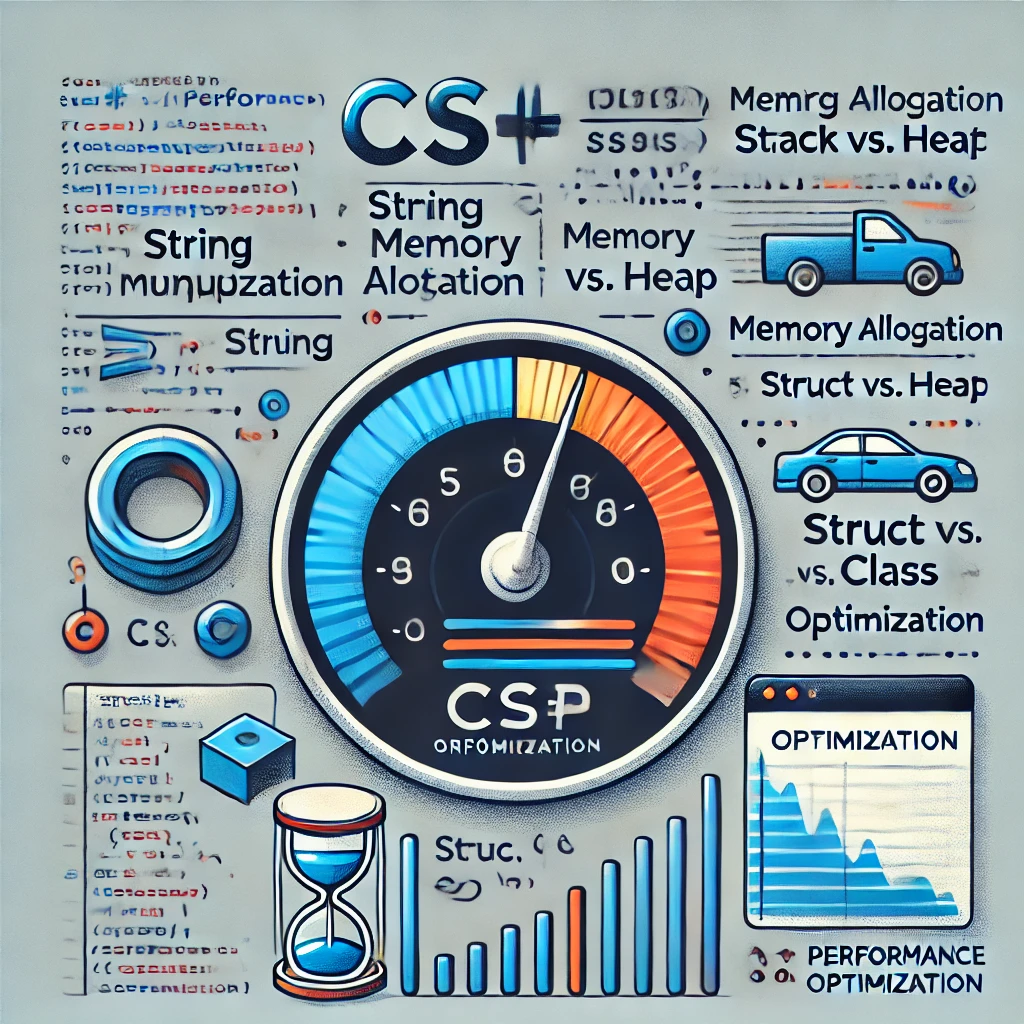Optimizing Performance in C#: Key Considerations

Performance is a critical aspect of any application, and in C#, making the right choices can have a significant impact on execution speed and memory usage. In this post, we’ll compare different techniques and concepts that influence performance, including string operations, value types vs. reference types, and memory management.
String.Replace vs. String.Format
Strings in C# are immutable, meaning every modification creates a new string instance, potentially leading to performance issues if not handled properly.
-
String.Replace: When replacing characters or substrings,String.Replaceis generally more efficient than usingString.Format, as it directly modifies an existing string (internally creating a new one but in a more optimized manner for simple replacements). -
String.Format: While useful for formatting dynamic output,String.Formatcan be less efficient because it involves parsing format specifiers and concatenating multiple values. If frequent modifications are needed, considerStringBuilderinstead.
Best Practice
Use String.Replace for simple text replacements and StringBuilder when modifying strings repeatedly in a loop to minimize memory allocations.
Class vs. Struct: When to Use Each
In C#, classes are reference types allocated on the heap, whereas structs are value types, usually allocated on the stack (unless part of another object on the heap). This distinction affects performance in different scenarios.
-
Classes (Reference Types):
-
Stored on the heap.
-
Garbage collection (GC) manages memory, which can lead to performance overhead.
-
Preferred for complex objects that require polymorphism or large amounts of data.
-
-
Structs (Value Types):
-
Stored on the stack (unless inside a class).
-
No garbage collection overhead, leading to faster allocation and deallocation.
-
Best used for small, frequently created objects (e.g.,
Point,DateTime). -
Avoid large structs, as passing them by value can become costly.
-
Best Practice
Use structs for small, immutable objects (value objects in DDD) and classes for larger, more complex entities that benefit from reference semantics.
Stack vs. Heap: Understanding Memory Allocation
Memory allocation plays a crucial role in performance, particularly when handling objects and value types.
-
Stack Memory:
-
Stores local variables and method parameters.
-
Fast allocation and deallocation (LIFO structure: Last In, First Out).
-
Automatically freed when a method exits.
-
Ideal for primitive types and small structs.
-
-
Heap Memory:
-
Used for dynamically allocated objects (instances of classes).
-
Managed by the garbage collector (GC), which introduces overhead.
-
Slower access compared to stack memory due to pointer dereferencing.
-
Best Practice
Prefer stack allocation whenever possible by using value types appropriately. Minimize unnecessary heap allocations to reduce GC pressure.
Conclusion
Understanding how different operations and data structures impact performance can help optimize C# applications. Choosing String.Replace or StringBuilder wisely, deciding between classes and structs, and efficiently managing memory between the stack and heap are all key considerations.
Do you have any performance tips or experiences optimizing C# code? Share your thoughts in the comments!
